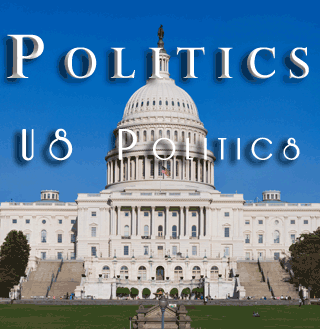Could the First Amendment Destroy America?
The First Amendment is not Absolute
Congress shall make no law respecting an establishment of religion, or prohibiting the free exercise thereof; or abridging the freedom of speech, or of the press; or the right of the people peaceably to assemble, and to petition the Government for a redress of grievances.
When the founding fathers passed the First Amendment to our Constitution on December 15, 1791, there were no computers let alone an internet. When they passed the amendment the only speech available was the unamplified voice and the printed word.
The press in 1791 was controlled by publishing houses that published newspapers, magazines, and books. All publishing houses had then and still now have editors whose job it is to edit everything that reaches the public. Editors cut out or rewrite bad style, misconceptions, insensitive expressions and, at that time, even profanity. The signers assumed editors would guarantee the speech would be decent and civil.
Today large newspapers have news editors, sports editors, art editors, music editors, food editors, society editors, whose job it is see that what leaves their office for the printers is true, verified, and inoffensive to sensitive ears.
The Internet has exploded with unedited publishing—or, perhaps I should say, unedited printing. Hate messages, lies, intimidations, bullying, slander, traitorous demands, attacks on our fragile democracy in favor of autocracy and oligarchy abound. There seems to be no depth of evil the Internet can't reach despite all efforts of the social media. The signers of the First Amendment could not foresee what is happening on the Internet today.
Every person with a computer connected to the Internet now has a "newspaper" or TV station in the shape of a web page, Facebook page, or some other social media web presence. Foreign powers and domestic terrorists in 2016 set up sites under American names in order to promote the candidate that favored them and debase his opponent.
The signers of the US Constitution and its amendments could not have dreamed of the extent of evil reaching our eyes and ears today. The Constitution is supposed to be the foundation underlying all our laws; it merely sets the parameters for laws. It is supposed to be flexible, adjusted to fit the times. The Constitution has been amended 27 times since its ratification in in 1788.
The signers of the Constitution and its amendments depended on their descendants to add granularity to the broad strokes of their creation. Justice Oliver Wendell Holmes added the first condition on the broad free speech protection offered by the First Amendment.
Holmes wrote in his 1919 opinion, representing a unanimous court, in Schenck v. United States: "The most stringent protection of free speech would not protect a man falsely shouting fire in a theatre and causing a panic. [...] The question in every case is whether the words used are used in such circumstances and are of such a nature as to create a clear and present danger that they will bring about the substantive evils that Congress has a right to prevent."
Since the Holmes declaration, laws against defamatory speech, against written libel and spoken slander, a definition of "profanity", and various other restrictions have been added. So, freedom of speech is not absolute.
When Donald Trump sent the mob listening to him "…down Pennsylvania Avenue [to the Capitol]" to "fight like hell! And if you don’t fight like hell, you’re not going to have a country anymore", he was not merely communicating with the angry mob. His speech was like yelling "Fire!" in a crowded theater, raising a "clear and present danger."
The danger could not have been clearer or more present for the police defending the the Capitol or the congressional leaders who were rushed to safe rooms to save their very lives. The gallows erected outside the Capitol with Vice President Pence's name on it made clear what the mob had come prepared for.
All of this came into being from months and years of unrestricted access to editorless print disguised as publication on the Internet and in the air waves. Freedom of speech is not absolute, and we must find ways of preventing unrestrained hatred and bizarre irrationality from unrestricted access to the Internet. Otherwise, the constitutional right to free speech could provide a pathway to overthrowing the very government that provides that right, an act of national suicide.
(Williamsport Sun-Gazette, September 17, 2021)




